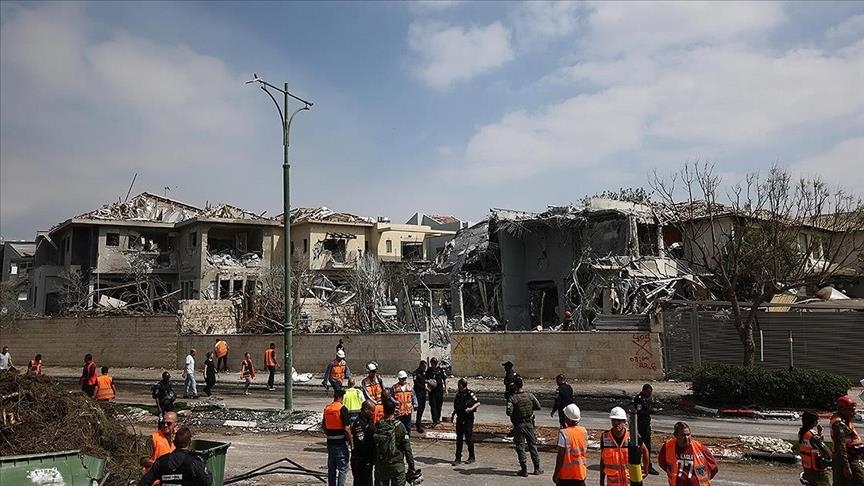Iranian envoy rejects term ‘ceasefire’, says attacks halted mutually
‘If the other side halts its attacks, we will reciprocate,’ says Mohammad Hassan Habibollahzadeh, referring to current Iran-Israel truce

ANKARA/ISTANBUL
Iran’s ambassador to Türkiye said Friday that his country does not accept the term “ceasefire” regarding the recent halt in hostilities with Israel, asserting that Iran only stopped its response after the opposing side ceased its attacks.
Mohammad Hassan Habibollahzadeh told reporters in the Turkish capital Ankara that the recent de-escalation came at the request of the other party.
“A ceasefire was achieved at the other party’s request,” Habibollahzadeh said. “But let me be clear — we do not accept the term ‘ceasefire.’ From the beginning, we said if the other side halts its attacks, we will reciprocate.”
Habibollahzadeh accused Israel of requesting US military support due to its "weakness and miscalculations," and said Washington responded by joining the conflict and targeting Iranian nuclear facilities.
The ambassador also said the clashes, sparked by Israeli strikes on Iranian territory, lasted nearly 12 days and led to the deaths of Iranian commanders, civilians and scientists. He described the attacks as violations of international law.
He warned that any future aggression would be met with retaliation.
Habibollahzadeh emphasized that Iran’s nuclear program remains under the supervision of the International Atomic Energy Agency (IAEA), which he said has found no evidence of nuclear weapons activity.
The Iranian official said Iran was not allowed to carry out peaceful nuclear activities, claiming: “They want nuclear knowledge to remain under their control. They do not want any country—especially Muslim countries—to have access to this knowledge,” he said. “All these illegal actions stem from that.”
He acknowledged that Iran’s nuclear sites suffered significant damage during the attacks, though no nuclear leakage occurred. He warned that the outcome could have been catastrophic for the region.
Habibollahzadeh also said Iran has launched initiatives at the UN in response to what he called violations of international norms protecting nuclear infrastructure.
- Türkiye’s support
The envoy thanked Türkiye for its solidarity during the conflict.
"We thank all our brothers and sisters in Türkiye who have supported us in various ways during this unjust and brutal war,” he said, adding this shows “how close” the two nations are.
The ambassador noted that while Tel Aviv received support from several countries, Iran fought alone.
He noted that a final decision regarding the strategic Strait of Hormuz lies within the authority of senior military and state leadership, and has yet to be made.
A 12‑day conflict between Israel and Iran erupted on June 13 after Israel launched airstrikes on Iranian military, nuclear, and civilian sites, killing at least 606 people and injuring 5,332, according to Iran’s Health Ministry.
Tehran launched retaliatory missile and drone strikes on Israel, killing at least 29 people and wounding more than 3,400, according to figures released by the Hebrew University of Jerusalem.
The conflict came to a halt under a US-sponsored ceasefire that took effect on June 24.
Anadolu Agency website contains only a portion of the news stories offered to subscribers in the AA News Broadcasting System (HAS), and in summarized form. Please contact us for subscription options.


